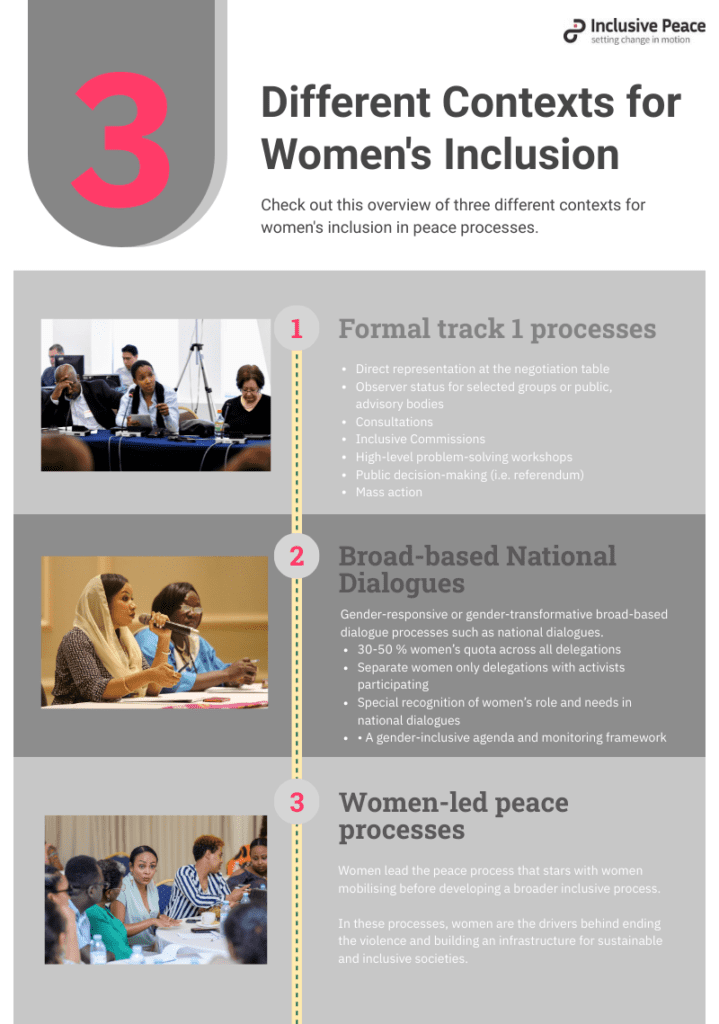Rethinking Women’s Inclusion in Peace Processes: What We Learned from a WPS Peacemaking Training in Ethiopia
Our Founder & Director Thania Paffenholz and our Head of Peace Process Support, Alexander Shoebridge, recently met with our new partner The African Women Peace and Security Institute, in Addis Ababa, to discuss how women mediators and peacemakers can advance peacemaking in their contexts.
The African Women Peace and Security Institute (AWPSI) is a new initiative set up in Ethiopia to create a network of women mediators and peacemakers who work in leadership positions in different sectors of politics and society intending to be ready for advancing peacemaking in their contexts. AWPSI currently starting to build the network in Ethiopia before moving to the neighboring countries. The founders of AWPSI are two amazing committed women with impressive careers in diplomacy, Ambassador Tadelelech Hailemichael and Ambassador Kongit Sinegiorgis.
Inclusive Peace had the honor to conduct the first training and exchange workshop for the first cohort of 20 Ethiopian women leaders last week in Addis Ababa. The workshop took place at an interesting time, both globally and in Ethiopia. Globally we observe setbacks to the #WPS agenda – the number of formal peace processes is substantially reducing and women’s inclusion remains challenged.
However, Ethiopia is an interesting case that shows that there are different models of peacemaking and dialogue happening at the same time that show different realities for women’s inclusion. In Ethiopia, the national dialogue is currently in its pre-dialogue consultation phase and women play a key role in the process – there will be a 30% women quota across all delegations as well as a separate women delegation comprised of women organisations.
At the same time, there are peace talks between the government and armed groups taking place, but women’s inclusion is here an absent feature. And then again, we see Ethiopian women activists organising and mobilising even before a broader inclusive process. During the workshop, the women developed the idea of a women-led peace process, where women are not only included but the drivers behind the process in all stages.
Upon reflecting on these different realities and contexts for women’s inclusion, we realised that the inclusion modalities we developed for women inclusion only make sense for the traditional track 1 peace table and not for other forms of high-level peacemaking or dialogue.

Report,
A Practical Guide to a Gender-Inclusive National Dialogue
This guide is intended to be a practical resource for anyone preparing, advocating for, or participating in an upcoming or ongoing national dialogue, and it seeks to foster understanding of how to make a national dialogue truly inclusive of women and gender.
May 2023Nick Ross,
Briefing Note,
Making Women Count in Peace Processes
This briefing note summarises key findings on women's inclusion and influence in peacebuilding and peace processes. It is based on the “Broadening Participation in Political Negotiations and Implementation” research project.
February 2016IPTI,


